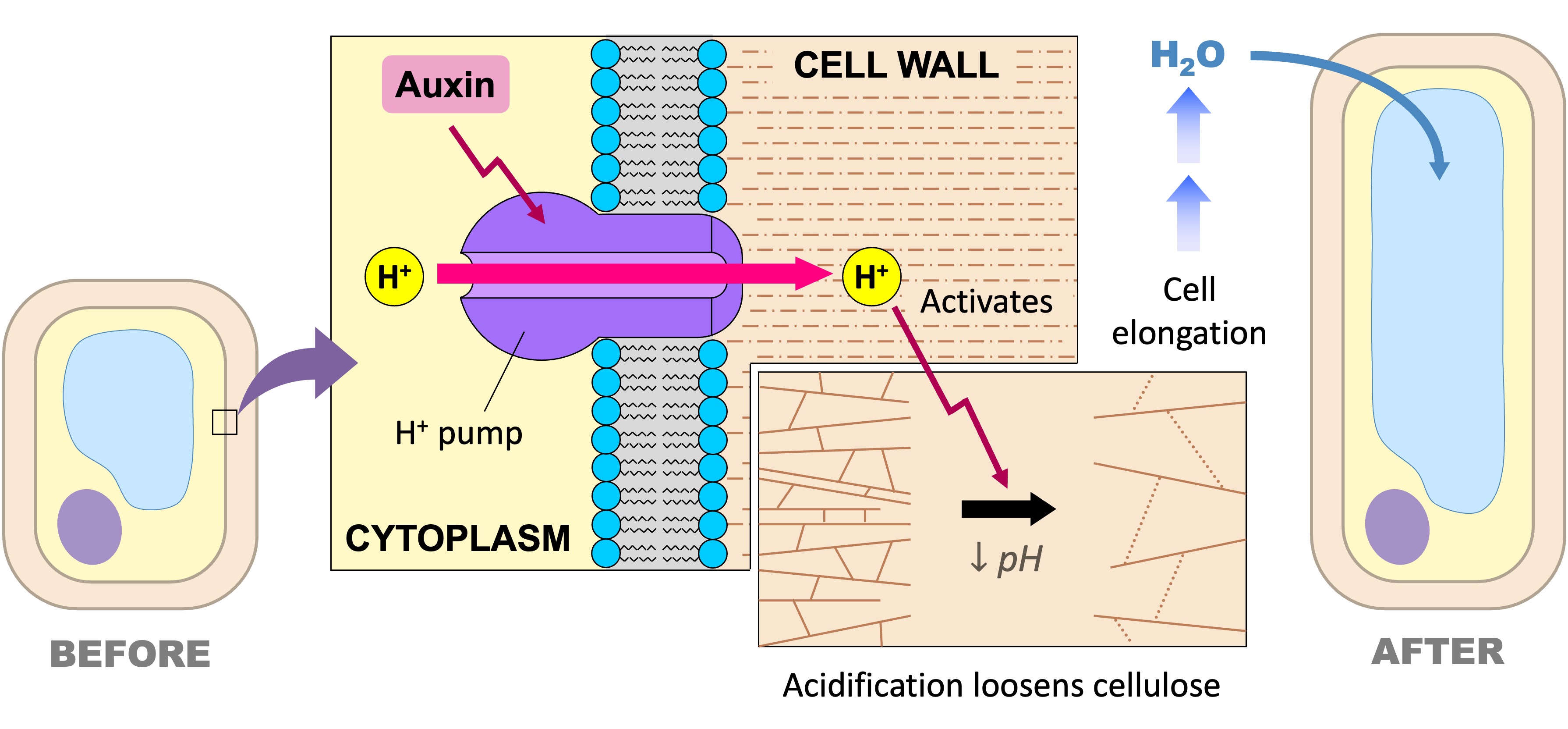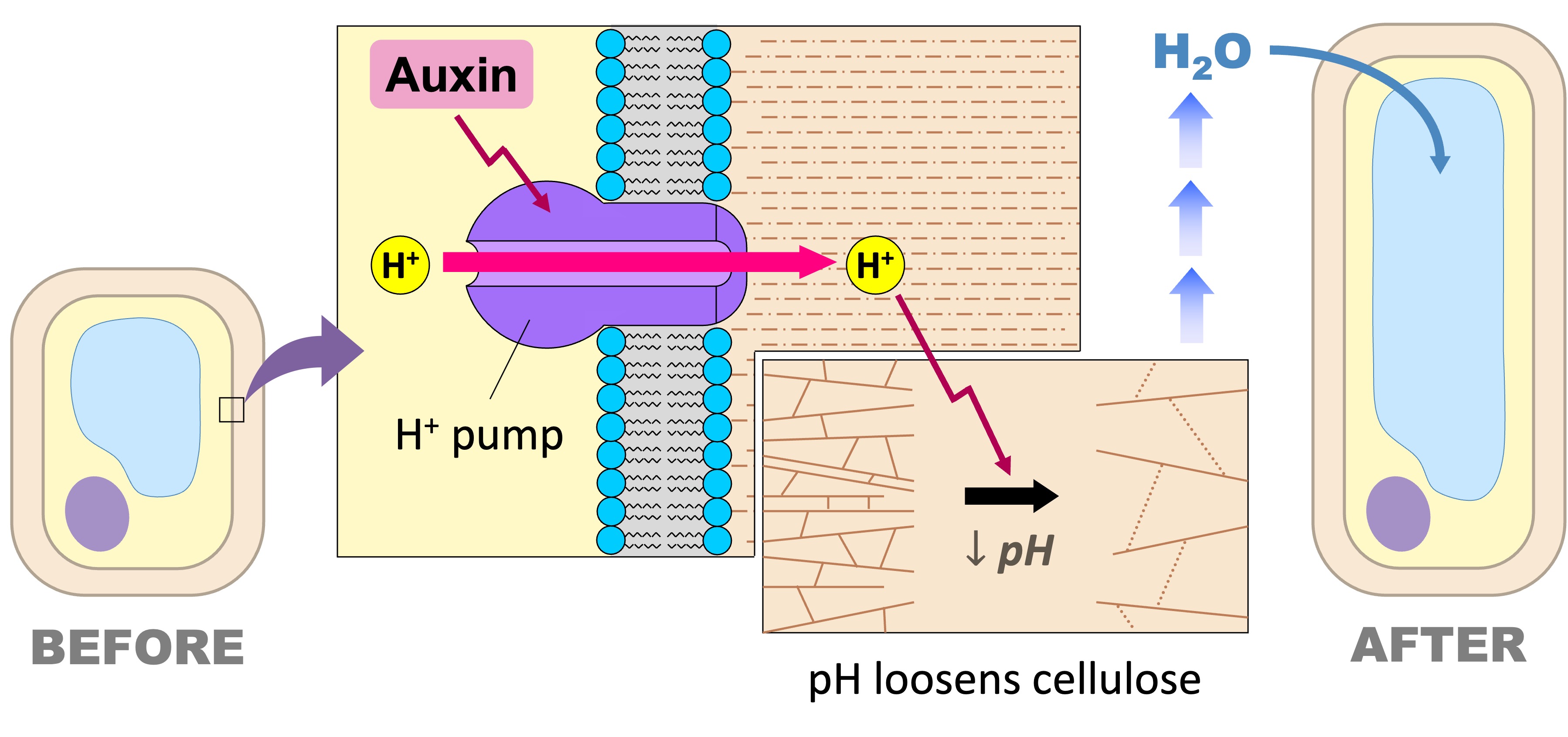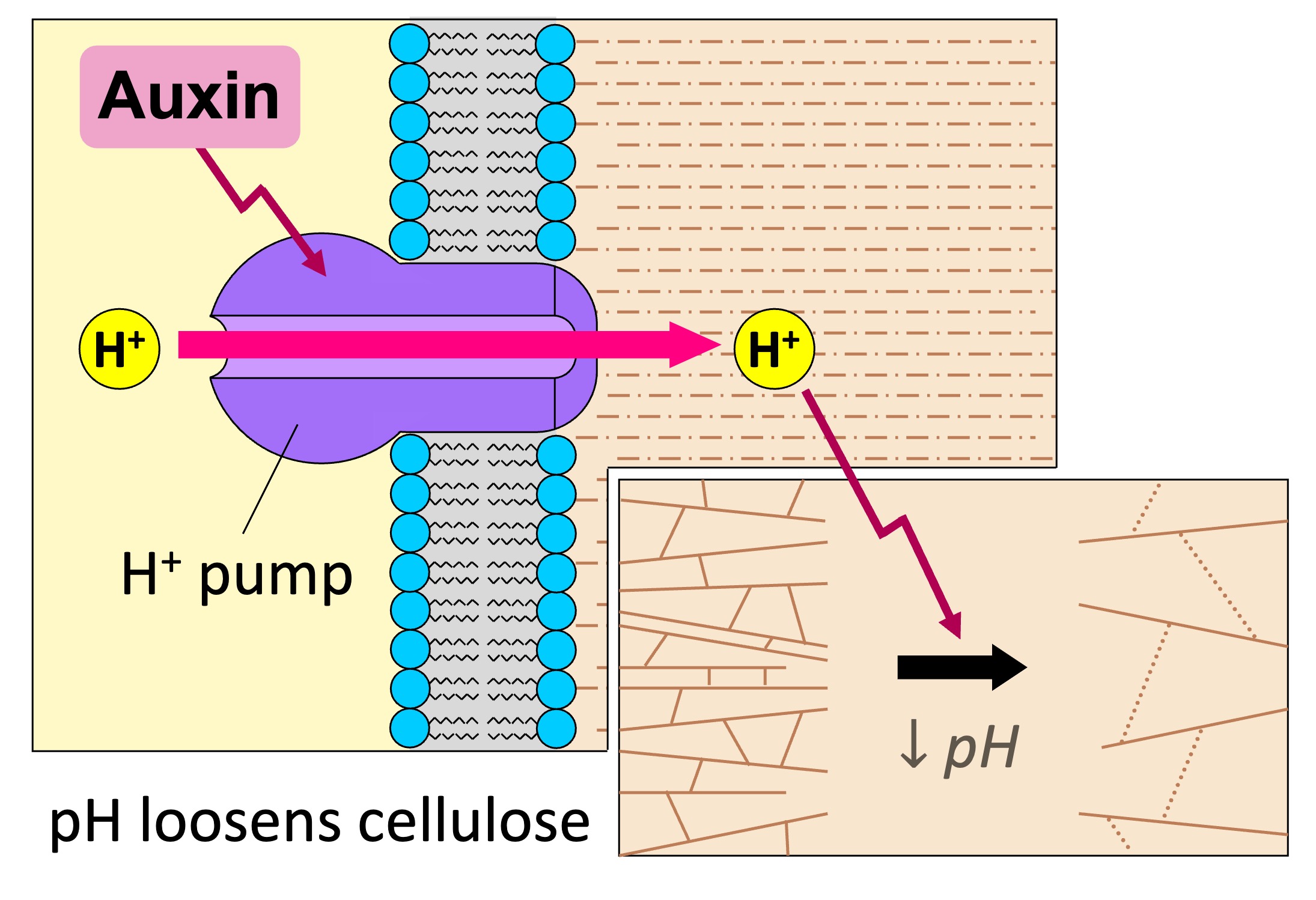

Auxin
Auxins are a group of plant hormones that increase the flexibility of the cell wall to promote growth via cell elongation
-
Auxin activates a proton pump in the plasma membrane which causes the secretion of H+ ions into the apoplast
-
The resultant acidification of the cell wall causes cellulose fibres to loosen (by breaking the bonds between them)
-
Additionally, auxin upregulates expression of expansins, which similarly increases the elasticity of the cell wall
-
With the cell wall now more flexible, potassium ion channels are opened to trigger an influx of potassium ions into the cytoplasm
-
This lowers the water potential inside the cell, leading to water entering the cell via osmosis (through aquaporins)
-
This increases the pressure within the cell, causing the cytoplasm to expand and the cell wall to stretch (cell growth)
Cell Elongation Process



Auxin Efflux
Auxin efflux carriers can set up concentration gradients of auxin in plant tissues to control the growth of cells in different plant regions
-
Auxin freely enters plant cells via diffusion and then undergoes a change in its ionisation state to prevent its passive efflux
-
Auxin efflux carriers are required to transport auxin out of the cell and can be used to regulate auxin distribution
-
Plants can position auxin efflux carriers on one particular side of the cell to create concentration gradients of auxin within a cell
-
Auxin can also be actively transported from cell to cell through the plant tissue to become concentrated in particular regions of a plant




